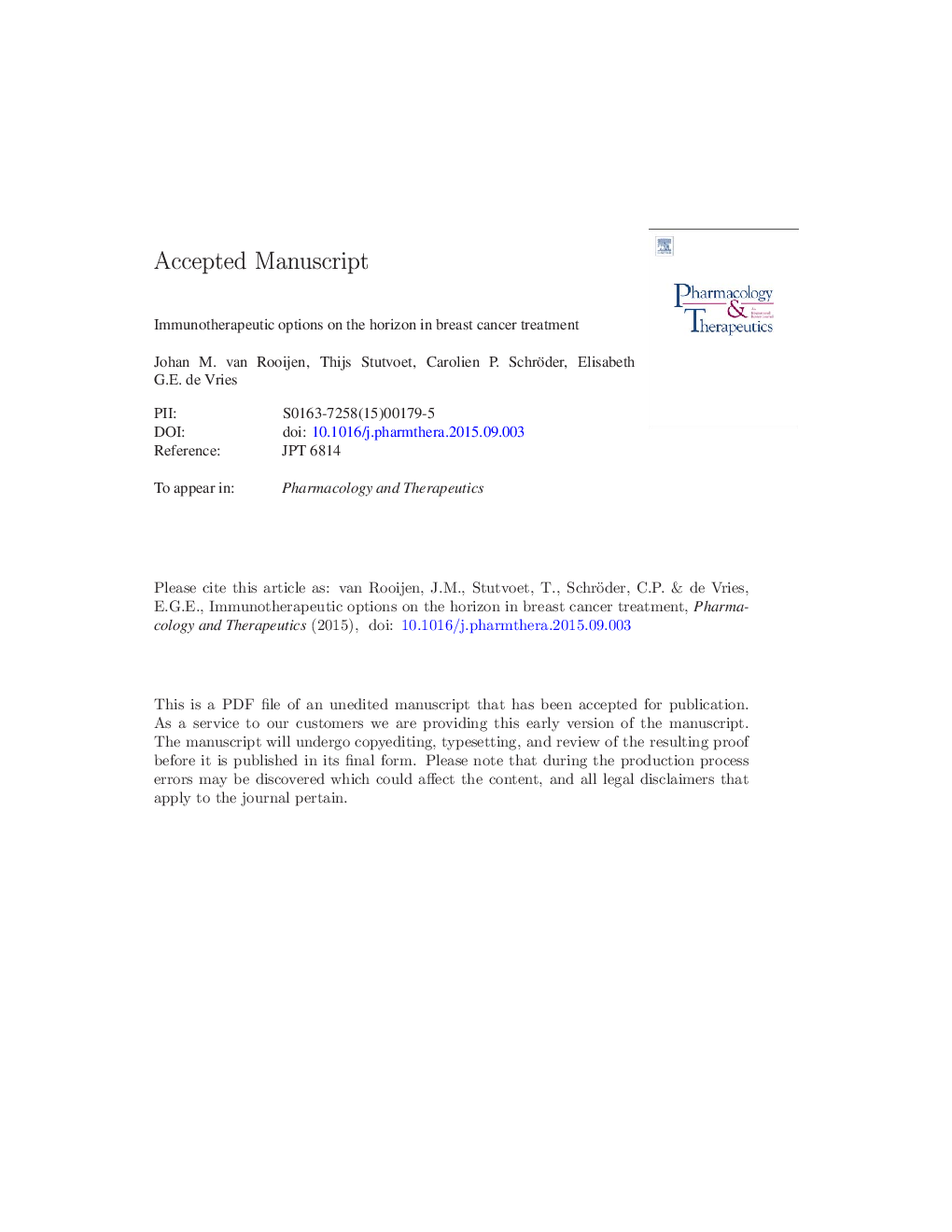| Article ID | Journal | Published Year | Pages | File Type |
|---|---|---|---|---|
| 5843923 | Pharmacology & Therapeutics | 2015 | 60 Pages |
Abstract
It is increasingly acknowledged that breast cancer can be an immunogenic disease. Immunogenicity appears to differ between subtypes. For instance, in triple negative breast cancer (TNBC) and HER2-positive breast cancer tumor infiltrating lymphocytes (TILs) are prognostic and predictive for response to chemotherapy containing anthracyclines, but in other subtypes they are not. Preclinical evidence suggests important immune based mechanisms of conventional chemotherapeutics, in particular anthracyclines. Early clinical studies with monoclonal antibodies targeting programmed death protein 1, programmed death-ligand 1 and cytotoxic T-lymphocyte-associated antigen 4 have shown anti-tumor efficacy. Tumor vaccines designed to increase the body's own anti-tumor immunity have shown an increased anti-tumor immunity, however clinical efficacy has not yet been demonstrated. Novel strategies will likely follow. In light of the increased interest in immune modulation, this review focuses on predictive immune-based biomarkers, immune-mediated effects from conventional therapies, as well as recent results and ongoing studies concerning immunotherapies in breast cancer.
Keywords
ADCCCTLA-4FDABiTEsMUC-1NKTMHC IIEpCAMTregGM-CSFTGFPD-L1PD-1HER2TNBCSTAT3PI3KCeACTLsMAPKPFsantibody dependent cellular cytotoxicitycarcinoembryonic antigenHuman leukocyte antigenHLAmajor histocompatibility complex IIImmunotherapiesinterleukinProgression free survivaloverall survivaltransforming growth factorTumor infiltrating lymphocytesTILSImmune systemFood and Drug AdministrationNon-small-cell lung cancerNSCLCTriple negative breast cancerBreast cancerRegulatory T cellnatural killer T cellDendritic cellNatural killer cellgranulocyte-macrophage colony-stimulating factorPhosphatidylinositol 3-kinaseCytotoxic T lymphocytesCARImmune checkpoint blockadesignal transducer and activator of transcription 3programmed death-ligand 1epithelial cell adhesion moleculeBiomarkersTumor vaccinesPCRpathologic complete responsecytotoxic T-lymphocyte-associated protein 4programmed cell death protein 1mitogen-activated protein kinaseEstrogen receptorHuman epidermal growth factor receptor 2Progesterone receptor
Related Topics
Health Sciences
Pharmacology, Toxicology and Pharmaceutical Science
Pharmacology
Authors
Johan M. van Rooijen, Thijs S. Stutvoet, Carolien P. Schröder, Elisabeth G.E. de Vries,
